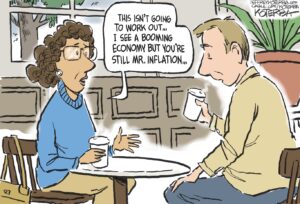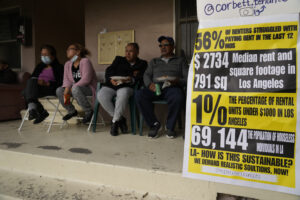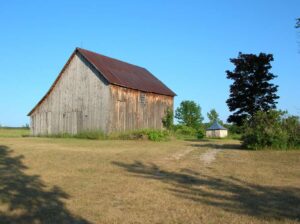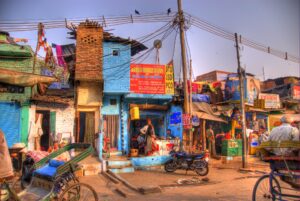Hundreds Arrested in Price Protests Across Tunisia
The government has been raising fuel prices and taxes on many products and services to reduce the country’s annual deficit.TUNIS, Tunisia—Tunisian authorities said Wednesday that 237 people were arrested and dozens of others injured across the country in recent days as violent protests against government-imposed price hikes spread to more cities and regions.
The Interior Ministry said that those arrested took part in looting, thefts and arson. Some blocked roads with blazing tires and targeted police stations, municipal depots, stores and banks.
“These acts were carried out at night and have nothing to do with the ongoing protests,” the ministry’s spokesman, Khalifa Chibani, told Tunisian news agency TAP.
He said 58 members of the security forces were injured and 57 police vehicles damaged, but didn’t say how many protesters were hurt. One protester died Monday.
The latest unrest recalled the protest movement that led to the ouster of authoritarian President Zine El Abidine Ben Ali seven years ago. The 2010-2011 Tunisian revolt sparked uprisings across the Arab world, called the Arab Spring.
Tunisia’s economy has struggled ever since. The current protests are being driven by economic considerations related to a new budget law.
The Tunisian government is raising fuel prices and taxes on many products and services to reduce the country’s annual deficit. Deficit reduction is among conditions set by the International Monetary Fund, which is providing $2.9 billion in loans.
Trying to calm down protesters’ anger, Prime Minister Youssef Chahed made a surprise visit to Tebourba, a town about 30 kilometers (20 miles) from the capital of Tunis, where a 45-year-old protester, Khomsi Yefrni, died in unclear circumstances on Monday night.
Chahed went to the town’s police station that was set ablaze during protests earlier this week. He was greeted by an angry mob who demanded the dismissal of the local chief official.
After the death of the protester, unrest spread to more regions in the country. Violent protests were now affecting at least two dozen towns including suburbs of the capital, Tunis.
The army had to send reinforcements in many cities to protect public buildings, banks and stores.
On the outskirts of Tunis, clashes and arsons broke out in the towns of Attadhamoun, Intilaka, Zahrouni and Zayatine, which were covered under clouds of smoke, private radio Mosaique FM reported. Young protesters with faces covered with scarves tried to break into shops, but were pushed back by police.
In Ben Arous, another Tunis’ suburb, a video posted on the internet showed looters leaving a supermarket with large amount of goods in their hands.
In the southern town of Kebili, soldiers had to shoot rubber bullets in the air to prevent people from looting a supermarket, according to private radio Shems.
The tensions took a political twist Wednesday when the leader of the Popular Front, a coalition of left-wing parties, Jilani Hammami, called for an early election in the country because, he told radio Mosaique, “Tunisia is experiencing an exceptional crisis that needs an exceptional solution in the absence of horizons.”
Legislative and presidential elections in Tunisia are scheduled for the end of 2019.
___
Philippe Sotto contributed to the report.
Your support matters…Independent journalism is under threat and overshadowed by heavily funded mainstream media.
You can help level the playing field. Become a member.
Your tax-deductible contribution keeps us digging beneath the headlines to give you thought-provoking, investigative reporting and analysis that unearths what's really happening- without compromise.
Give today to support our courageous, independent journalists.









You need to be a supporter to comment.
There are currently no responses to this article.
Be the first to respond.